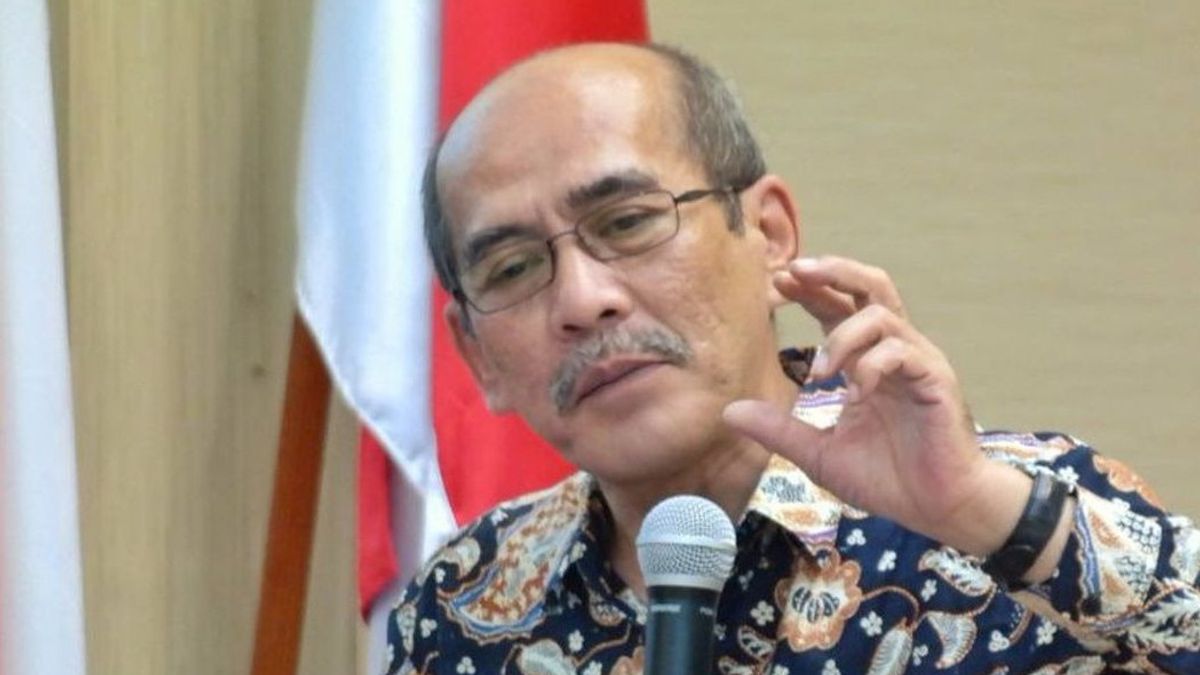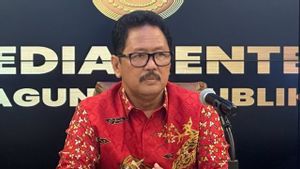JAKARTA - University of Indonesia Senior Economist Faisal Basri assessed that Indonesia's economic growth would be impossible to grow if the handling of COVID-19 could not be handled properly. In fact, cases of COVID-19 transmission in the country continue to soar to reach 3,000 within 24 hours.
According to Faisal, Indonesia needs to learn from New Zealand, Finland, Singapore, Malaysia and Thailand which do not prioritize the economy, but on handling COVID-19. Evidently, this step actually enabled these countries to quickly recover their economy.
As is well known, Finland, Singapore, and Malaysia have officially become countries that are entering the brink of recession in 2020. However, due to the good handling of COVID-19 in these countries, foreign tourists, who have the potential to generate foreign exchange, are allowed to return to their countries.
However, said Faisal, Indonesia was still on the list not allowed to visit. This is because the handling of the COVID-19 pandemic in the country is classified as poor compared to other countries.
"Indonesia is not allowed to enter, it is still blacklisted because of its reputation for handling the fourth bad COVID-19 in the world. Consciously not aware, we are being punished by the world. For not being able to handle this pandemic," he said at a joint hearing with Commission VI, at the DPR Building, Jakarta, Monday, August 31.
In fact, Faisal said, the death rate due to COVID-19 in Indonesia did not follow WHO standards. According to him, the data shown by the government is not credible.
On the other hand, Faisal said, several countries also had high cases of COVID-19 transmission but could open entrances for foreign tourists. For example, Saudi Arabia and Spain.
"Okay, there are countries like Italy, cases are still rising in Spain but under control. He can open (tourism) but the condition is that the testing is multiplied. Saudi Arabia's cases continue to increase, testing is multiplied. Israel has also opened its economy but the testing is multiplied so they can do more. , so immediately isolation, "said this INDEF economist
- https://voi.id/berita/12577/faisal-basri-strategi-pemerintah-tangani-penyebaran-covid-19-hanya-menunggu-vaksin-datang
- https://voi.id/berita/9791/erick-thohir-pimpin-tim-panganan-covid-19-faisal-basri-mengurus-bumn-saja-tak-bisa
- https://voi.id/berita/10692/faisal-basri-pemerintah-jangan-prioritaskan-pemulihan-ekonomi-saja-contohlah-saat-panganan-tsunami-aceh
[/ see_also
Meanwhile in Indonesia, said Faisal, cases are still high, and tourism has been opened even though it is not yet for foreign tourists, but Indonesia has not carried out massive testing.
"We don't have a testing strategy. Saturday, Sunday, there is also a little testing off, while Saturday, Sunday, the virus doesn't have a holiday," he said.
According to Faisal, to carry out massive testing, 200 thousand volunteers are needed. He said the government could take advantage of the central statistics agency (BPS). Because the agency is doing a census.
"Believe all the economists say yes health first. It is impossible like now many offices are closed. Help labor-intensive testing companies. Why are BUMN now being told to do business? All over the country testing is free. I paid IDR 1.7 million because I at the University, "he said.
Faisal assessed that the government currently does not have a strategy to deal with the COVID-19 pandemic. Moreover, the focus is only on the economic sector.
"Brake gas, brake gas, that means there is no strategy, it's trial and error. Anyway, open it first, then if there are lots of brakes. Masyaallah, that's human life," he said.
The English, Chinese, Japanese, Arabic, and French versions are automatically generated by the AI. So there may still be inaccuracies in translating, please always see Indonesian as our main language. (system supported by DigitalSiber.id)













